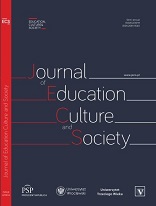Official and Internet translations – comparison of culture-related aspects from the perspective of foreignization and domestication dichotomy
Official and Internet translations – comparison of culture-related aspects from the perspective of foreignization and domestication dichotomy
Author(s): Patrycja KarpińskaSubject(s): Language and Literature Studies, Translation Studies
Published by: Fundacja Pro Scientia Publica
Keywords: refraction;Internet translation;foreignization;domestication;comparative analysis
Summary/Abstract: Aim. The study aimed at establishing whether there are any significant differences between the two translations of the same novels: one published unofficially and anonymously on the Internet, and the other published officially by the publisher. The elements taken into consideration in the analysis were: the culture-bound elements, the vulgar terms, and syntactic calques. Methods. The theoretical part of the research is based on the refraction theory by A. Lefevere (1992), according to whom translation is a process regulated by a system in which it functions. In opposition to the regulated translational activity stands unofficial Internet translation. The comparative analysis of the translations was further developed with the application the ‘foreignisation’and domestication dichotomy proposed by L. Venuti (1995). Results and conclusion. The results of the study imply that there are significant differences between the official and unofficial translations; the official translations aim at domesticating techniques, whereas the unofficial translations are more likely to apply ‘foreignising’ techniques, even at the cost of breaking cultural values of the target culture. Cognitive value. The Internet has become an inseparable part of modern people’s daily life, yet Internet activities are still not regulated and researched to such a degree as ‘real world’ ones. The study aims at showing differences between the Internet and official translation, however, it is not able to answer the question regarding the roots of these differences. Further inquiries would be necessary in this case – if even possible.
Journal: The Journal of Education, Culture, and Society
- Issue Year: 9/2018
- Issue No: 2
- Page Range: 136-153
- Page Count: 18
- Language: English

